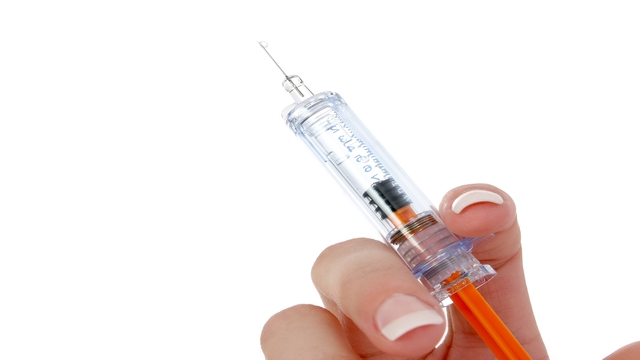 Jaimie Duplass/PhotoSpin
Jaimie Duplass/PhotoSpin
The cases of pertussis, more commonly known as whooping cough, have been on a drastic rise in the last year. Once thought to be eradicated from the United States, its resurgence is putting researchers, doctors and parents on high alert.
So far in 2012, there have been 26,000 cases of whooping cough, with more than 10,000 cases being found in children between 7 and 10 years of age. In all of 2011, there were just over 18,719 cases according to the CDC.
One of the many reasons for this extreme rise is the weakening effect of the pertussis vaccine. This vaccine was thought to be effective for a much longer time than it actually is.
Researchers at the Kaiser Permanente Vaccine Research Center in Oakland, Calif. found that the vaccine gets dramatically weaker soon after the child gets the last of the five vaccine shots around 6 years of age.
The rate of protection goes from around 95 percent down to 71 percent within five years. It is no wonder then why so many cases are occurring in children from 7 to 10 years old.
This study was published on Wednesday September 12, 2012 in the New England Journal of Medicine.
Whooping cough is a highly contagious bacterial infection that is spread through coughing, sneezing, and otherwise coming in contact with the infected person.
The disease got its name because of the barking or "whooping" cough that is associated with it, coming from the infected person trying to gasp for breath.
A person of any age can contract this disease but it is most dangerous for children.
After the vaccine was introduced in the 1940s, the number of whooping cough cases dropped considerably, and for decades lingered around 5,000 cases or less each year.
But the vaccine had some unwanted side effects such as pain and swelling at the injection site, fever and in a few cases, brain damage. In the 1990s, the vaccine was updated to use only parts of the bacterium instead of the whole thing, making it safer.
That update may be what also caused the vaccine to be less effective.
With this new information, health officials are now considering ideas to combat this disease in children older than 6 years of age.
Recommendations may include giving another booster shot for children prior to the one recommended at age11, strengthening the vaccine or developing a brand new one (which French scientists are already working on).
Experts say that the current vaccine is still the best way to lower the risk of contracting whooping cough and should be given to children on the current vaccination schedule.
Sources:
CDC.gov. Web. Published 5 September 2012. "Features: Pertussis (Whooping Cough): What you need to know".
http://www.cdc.gov/Features/Pertussis
Time.com. Web. Published 12 September 2012. "Whooping cough vaccine wears off too fast."
http://healthland.time.com/2012/09/12/whooping-cough-vaccine-wears-off-too-fast
Reviewed September 20, 2012
by Michele Blacksberg RN
Edited by Jody Smith




Add a CommentComments
There are no comments yet. Be the first one and get the conversation started!